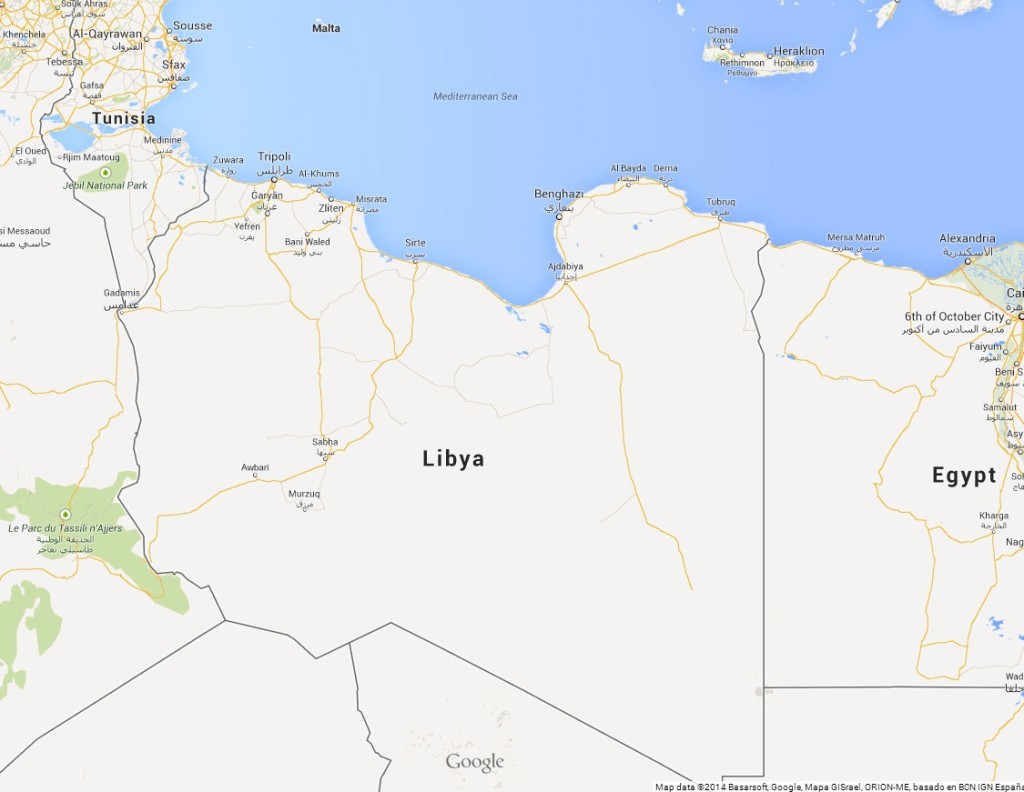
Libya’s Petroleum Facilities Guard said the force needs more weapons to combat Islamic State, which is seeking to control an area near oil ports.
“Battles in populated areas cannot be won by air power alone, ground forces are needed and we, once again, affirm that we can do it if weapons and ammunitions are made available,” said the PFG in an e-mailed statement addressed to the internationally recognized government, one of two administrations ruling the divided country.
Islamic State repressed a revolt last week in Sirte, a city in central Libya that it overran in June, executing a number of people who rose against its rule, according to the Libya Herald newspaper. Sirte, the home town of former leader Muammar Qaddafi, is 190 kilometers (120 miles) west of Es Sider, the North African nation’s largest oil port, under PFG control.
The 2011 rebellion that ended Qaddafi’s 42-year rule morphed last year into a civil war between forces backing the elected government in the east and moderate Islamist groups in Tripoli and the western region. Both governments are battling Islamic State amid UN-sponsored efforts to convince them to form a unified administration.
Brent for October settlement traded at $48.62 a barrel, down 1.2 percent, at 1:23 p.m. Singapore time on Monday. The global benchmark grade has dropped about 15 percent this year.
Libya’s Production
Sitting on Africa’s largest oil reserves, Libya pumped about 1.6 million barrels in a day of crude before the 2011 rebellion. Output fell to a quarter of that level this year as militias affiliated with rival governments fought for control of oil resources. Tribes and workers seeking jobs and better pay have also blocked operations at fields and pipelines, making the country the smallest producer in OPEC.
Crude exports from Es Sider and the nearby Ras Lanuf oil port stopped in December after they came under attack. State-run National Oil Corp. declared force majeure, a legal status protecting a party from liability if it can’t fulfill a contract for reasons beyond its control, at the two export terminals the same month.
The elected government, based in the city of Al-Bayda, didn’t address the PFG call when it issued a statement about the violence in Sirte on its Facebook page over the weekend.
The government called on fellow Arab nations “to launch air strikes on selected targets belonging to the Daesh terrorist group in Sirte, in coordination with our services,” according to the statement that refers to the most widely used Arab acronym of Islamic State.
It also called on “friendly and allied states” to put pressure on the United Nations Security Council to end an arms embargo that prevents its forces from getting new weapons. The ban was initially imposed against Qaddafi’s regime and the UN Security Council in March rejected a joint Libyan-Egyptian request to get it lifted, over concern that the government would not be able to prevent the weapons from leaking to multiple loosely controlled armed groups.